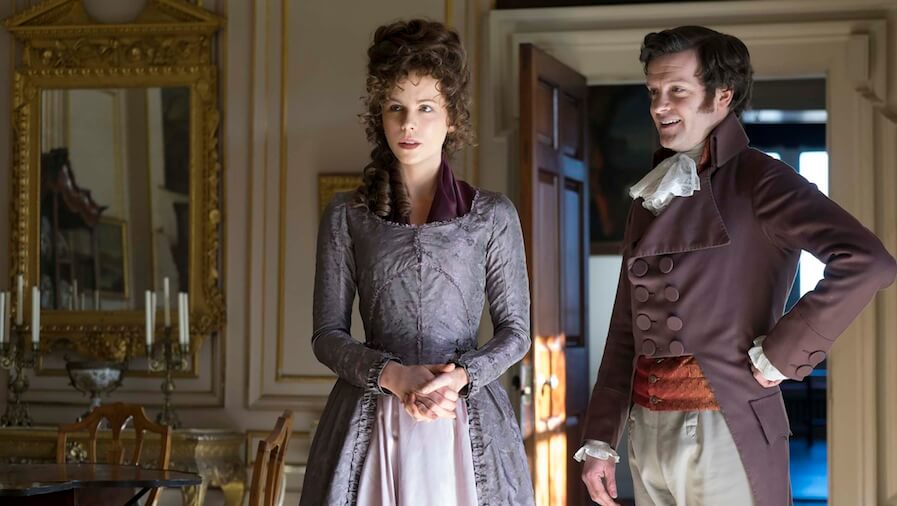‘Love & Friendship’ Has there ever been a bigger no-brainer than Whit Stillman adapting Jane Austen? The filmmaker has been having his characters debate her novels since his 1990 debut, “Metropolitan,” and they share many of the same obsessions: drolly articulate dialogue; lovelorn, overly self-examining young people; hangs with the higher class in which money is still an ever-present issue. But Stillman doesn’t come at Austen the easy way. Not only has he adapted a lesser-known work — the teenage novella “Lady Susan,” unfinished and published posthumously — but one written in an epistolary format (that is, entirely as letters). Stillman has to unpack a tangled narrative on top of fleshing it out, on top of conjuring up his own army of quips that can suitably pass for Austenese. RELATED: Interview: Chloe Sevigny on Whit Stillman, missing old, cool New York It’s also not your typical tale of moony proposals and pretty dresses and hunky men emerging wet from lakes. “Lady Susan” — which Stillman renamed after another of Austen’s juvenile works — is sometimes closer to Edith Wharton, following a 30-something widow (Kate Beckinsale) as she navigates through a hornet’s nest of good manners and wealth monsters in the pursuit of a new husband, as well as one for the mousy daughter (Morfydd Clark) she openly deplores. Beckinsale’s Susan isn’t a tragic doormat, though. She’s cunning and acid-tongued, but always careful to conceal her intentions under proper behavior. She plows through an endless succession of prim drawing rooms, manipulating passive-aggressive richies who find the thought of a woman of her age on the prowl not a little bit vexing. Stillman stormed onto the ’90s indie scene with films about people one didn’t make the heroes of indies, much less show sympathetically. (The others were “Barcelona” and “The Last Days of Disco.”) He was then hit with a grueling 13-year hiatus from the screen, but when he returned — with the delightful “Damsels in Distress” — he was funnier, if anything. His characters are now more absurd, more performative, and his worlds more stylized. (The exception is his Amazon pilot “The Cosmopolitans,” which was belatedly picked up for a season and seems closer to the more recognizably human films with which he made his brand.) This current Stillman cuts Austen down to the bone, emphasizing the jokes and quips. Some of them are hers (e.g., a character fuming, “Facts are such horrid things”); some are his. It’s often hard to tell whose is whose. They’re delivered by a seasoned cast of Brits, none better than Beckinsale, an actress turned by Hollywood into an anonymous hottie but who can murder with the right, hyper-articulate, nasty role. (See also: “Cold Comfort Farm” and, especially, Stillman’s own “The Last Days of Disco.”) The film’s funniest character — the ridiculous and oblivious Sir James Martin, played with who’s-that-guy? gusto by Tom Bennett — has been greatly fleshed out from the source. Prone to absurd and lengthy declamations delivered through a stupid smile, he’s either too dumb or too rich to notice the discomfort he causes in all. Stillman can be a fine, deceptively “plain” filmmaker, with a style that doesn’t scream out to be noticed. Still, it’s a delight seeing him this keyed-up. Every part of “Love & Friendship” looks lovingly fussed-over, even as minor a procedure as introducing the many characters becomes an occasion to slip in more jokes. (Each character poses against their name and, often, a witty description, like, “decidedly boring.”) RELATED:Agyness Deyn doesn’t want to be your typical model-turned-actor But Stillman does more than bring the funny: He gloms onto the way all Austen’s works, and especially this one, manage to stew in refinery while gently exposing snobbery, classism and bigotry. The heroes of “Lady Susan” are women who scheme, who are savvy, who won’t let social restrictions keep them from a lifetime of security. Even then victories can be pyrrhic. Susan’s only real confidant — an American played by Beckinsale’s “Disco” pal Chloe Sevigny — grumbles about her older husband, presently laid up with gout. These are the things only hinted at, if that, in most Austen movies, which have long been a cozy cottage industry unto themselves. Rarely are they this hilarious or this angry, in its quiet way, though that might make it sound modern — a term Stillman, lover of the deep past, would abhor. Rather he’s taken what’s already there and made sure it all gets in. He’s made an Austen movie that doesn’t, for a change, feel like the corset’s tied too tight.
Director: Whit Stillman
Stars: Kate Beckinsale, Xavier Samuel
Rating: PG
4 (out of 5) Globes
‘Love & Friendship’ finds Whit Stillman finally doing Jane Austen

Roadside Attractions
Follow Matt Prigge on Twitter @mattprigge


















